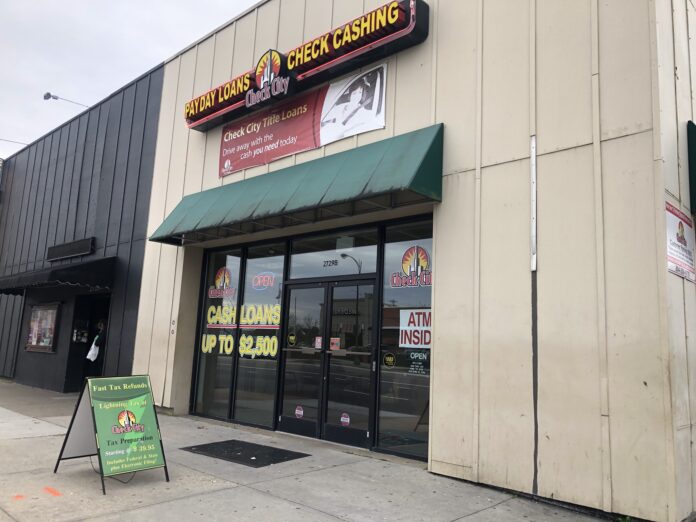Del. Mark Levine recalls receiving a $1,000 loan offer from a company with a 299% interest rate buried deep in the fine print.
“As the company compounds daily at this interest rate, this loan would cost anyone desperate enough to accept this offer more than $20,000 in interest and fees if they were to try to pay the $1,000 loan back in full just one year after receiving it,” Levine, a Democrat from Alexandria, stated in a newsletter.
If the loan was left for two years untouched, the interest cost would have risen to a staggering $400,000, Levine said.
In an effort to fight predatory lending, loans with unfavorable terms to the borrower, the House of Delegates and Senate each voted recently to pass bills that will alter laws related to consumer lending. That includes payday loans, which would be renamed short-term loans, car title loans and open-end credit, such as credit cards and other lines of credit.
House Bill 789, known as the Virginia Fairness in Lending Act, patroned by Del. Lamont Bagby, D-Henrico, and co-patroned by 42 other delegates, including Levine, passed the House 65-33 on Jan. 31. Companion bill Senate Bill 421, patroned by Sen. Mamie Locke, D-Hampton, passed the Senate Monday, 23-16. The Virginia Poverty Law Center, an advocacy group for low-income Virginians, helped draft the legislation.
“Most of the lending going on now is just gouging people and making obscene profits for the payday and car title lenders that have no interest in helping people and making it mutually beneficial,” said Jay Speer, executive director of the VPLC and director of the Center for Economic Justice.
The Virginia Fairness in Lending Act is largely centered around the parameters of short-term loans. The bill incorporated four other proposed House bills which aimed to tighten regulation on consumer lending, financing for personal or household purposes, and to close existing loopholes for corporations.
Lawmakers want to increase the maximum amount of such loans from $500 to $2,500. Current law sets the duration of these loans at a minimum of two times the borrower’s pay cycle. For example, if you are paid biweekly, you have one month to pay the loan back. This bill will give people a minimum of four months to repay a loan and a maximum of two years.
HB 184, patroned by Levine, is one of the incorporated bills. The bill sets a 36% maximum interest rate on open-end credit plans which currently have no cap, and will also apply to payday loans. Levine said his fight against predatory loans began during the 2018 General Assembly session when he proposed a bill to regulate loans.
“These are designed to bankrupt people that are on the edge of poverty anyway,” Levine said. “There’s a cycle of poverty and these kinds of loans perpetuate that cycle of poverty.”
The proposed legislation also applies to car title loans, loans in which the borrower offers their car as collateral. It sets the interest rate on title loans at no more than 25% of the federal funds rate at the time of the loan.
An estimated 12 million Americans take out payday loans each year, racking up $9 billion in loan fees, according to the Pew Charitable Trust. Borrowers may fall into the “debt trap,” a situation in which a borrower is unable to pay back a loan due to high interest rates. The VPLC reported that average annual percentage rates in the state are 251% for payday loans and 217% for title loans.
Several payday loan establishments declined to comment on the legislation when Capital News Service reached out for comment.
Peter Roff, a senior fellow at Frontiers of Freedom, a Northern Virginia-based nonprofit promoting limited government and free enterprise, wrote in a recent opinion piece that while consumer lending laws need reform, the current legislation would create inequality and less availability in the consumer credit marketplace. He said the lawmakers should focus on better reform and “not just ideas that are politically popular.”
The Virginia Fairness in Lending Act states that the amount needed to regulate consumer lending will be just under $300,000 and will be accumulated by fees required for lenders to become licensed. Currently there are 15 licensed lenders with over 150 locations in the state, in addition to online lenders.
“Internet lenders use these loopholes, like open-end credit, which have no regulation at all,” Speer said. “House Bill 789 and Senate Bill 421 close all these loopholes and set up a fair system that’s fair for borrowers and lenders.”
HB 789 is currently in the Senate Committee on Commerce and Labor. SB 421 heads to the House for consideration.
Emma Gauthier / Capital News Service

